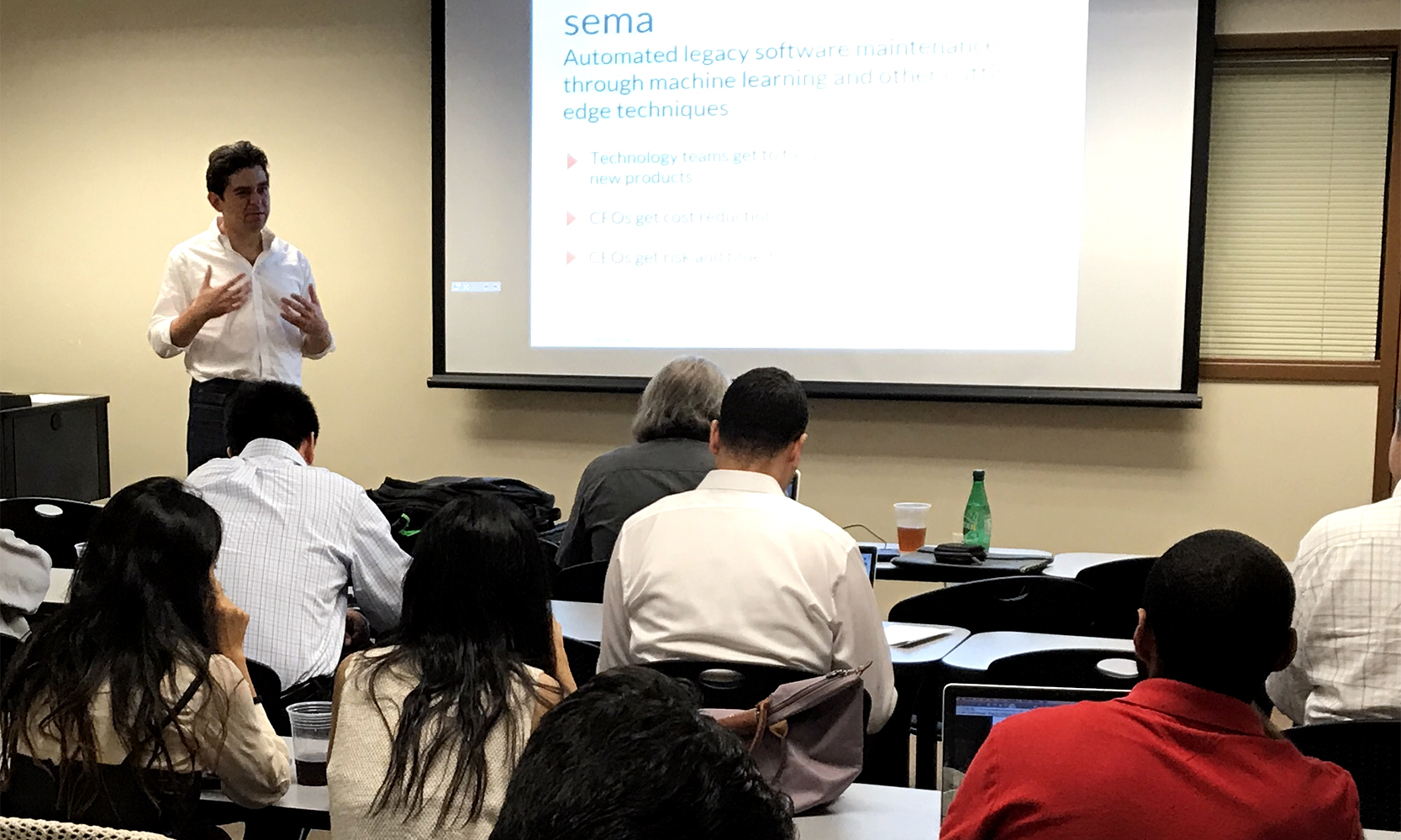
With the goal of innovative software development, Computer and Information Science Assistant Professor Marouane Kessentini founded UM-Dearborn’s Search-Based Software Engineering (SBSE) research lab five years ago.
And now Kessentini—after building a solid foundation through recruiting talented graduate students and maturing product development—is seeing the impact the SBSE lab is making for the university, in students’ lives and in the software industry.
The SBSE lab is partnering with software company Sema to find the most efficient way to help businesses fix their existing software code. Through the partnership, the University of Michigan Office of Technology Transfer has licensed four of the lab’s projects; Sema also has given funding for the lab to continue research and development efforts.
Sema CEO Matthew Van Itallie said he searched the globe for experts in efficient software maintenance, and Kessentini’s name frequently appeared in publications.
“I read more than 1,500 journal articles from software experts around the world over the course of 18 months, looking for the best scientist on earth for my company—and I found him in Dearborn, Mich.”
The lab’s research—which is related to refactoring, testing, migration and technical debt—enables industry programmers to focus on building better software because the time they spend performing software maintenance is reduced, Kessentini said. Currently, he said programmers spend up to an estimated 60 percent of their time fixing old code.
“That is a problem. Programmers are very creative people. They could be spending time making things better, adding new features to what already exists,” he said. “But they are too busy doing software maintenance.”
Kessentini said the partnership also gives the SBSE lab the opportunity to get the developed technologies out into industry.
“We have tested the technologies in our lab. But having them applied in a real-world setting and be successful shows us that we are on the right track. We are seeing how our work is making a difference for others,” Kessentini said. “That is the mission of this lab and the mission of the university.”
Kessentini became interested in finding an effective solution to fixing outdated code and software maintenance after graduate school. As a Ph.D. student, he published an award-winning paper in 2012 on code transformation, which is getting different coding languages—for example, Python or Java—to “speak” with each other.
“That got me thinking: If different coding languages can communicate, why can’t there be a better way to fix problems within the same coding language?” he said. “This is an important issue because you cannot just take down a website—like for banks or government agencies—for long periods of time to build a new one. Developers typically need to work within the existing framework, which is more difficult than starting over. I wanted my lab to find ways to make this process easier.”
The lab is succeeding in that goal, according to Van Itallie.
“Dr. Kessentini has assembled a talented team that truly understands the problem we are trying to tackle,” said Van Itallie, noting the market for software maintenance is estimated to be $245 billion by the year 2020. “After meeting Dr. Kessentini, his students and others on campus, I’ve realized that emphasizing practicality and thoughtfulness in creativity is part of the Dearborn way.”
Van Itallie will further strengthen his partnership with UM-Dearborn soon as Sema plans to set up a technology hub in southeast Michigan.
He wants the technological side of his business to be in close proximity to Kessentini and the SBSE lab. Van Itallie said a multi-year contract is in the works, and he looks forward to seeing new technological developments that will enhance and evolve the software industry.
“The research will unlock extraordinary amounts of human creativity, and provides the opportunity to solve even greater problems through software,” Van Itallie said. “We could not be more excited to work with Dr. Kessentini, UM-Dearborn and the entire Michigan community to make it happen.”


